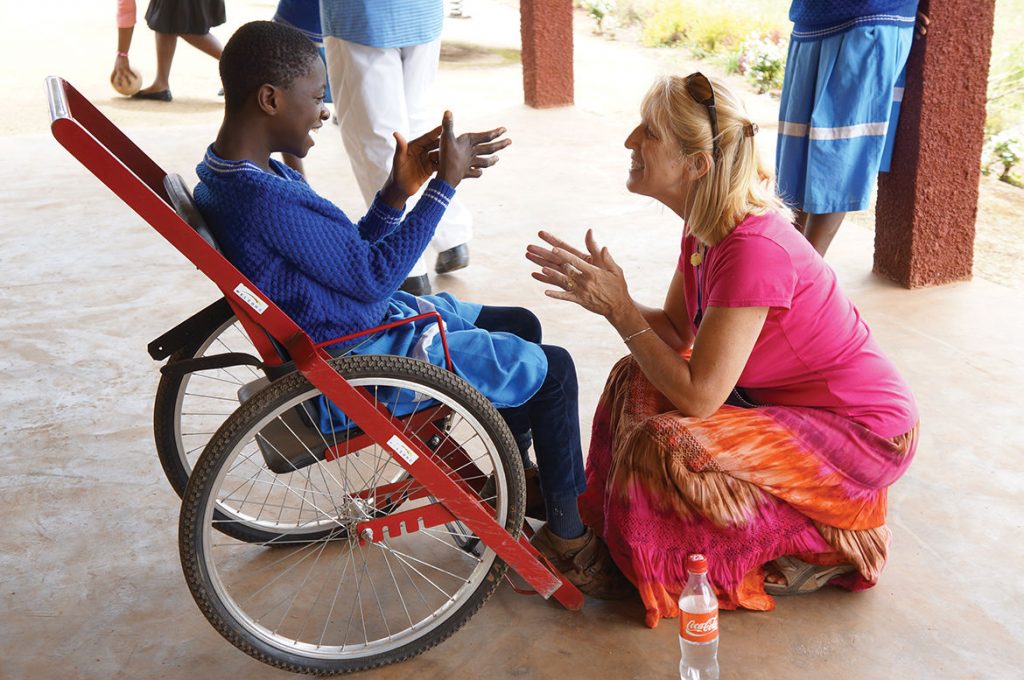When Msgr. Anthony J. Brouwers travelled around the continent of Africa in 1954, he heard a resounding request from the bishops he met there: “We need help.”
Many of the mission bishops at the time were doing all kinds of things they were not trained to do — pulling teeth if there were no dentist, fixing cars if there were no mechanic. So Msgr. Brouwers took their call for help to heart and went back to his home, the Archdiocese of Los Angeles, and founded the Lay Mission Helpers.
For 60 years now, the Lay Mission Helpers have sought out, trained and sent various professionals all over the world to any diocese whose bishop requests their help.
“It’s a challenging vocation,” said Chad Ribordy, associate director of the Lay Mission-Helpers.
“We’re all called to do mission — some of us do mission at home, in our churches and among our families, and some are called to do mission overseas. So I think we’re all called in some ways but this is a different kind of mission,” he said.
The Lay Mission Helpers accept applicants ages 21-62 years old who are willing to make a three-year commitment to serving the poor abroad. Once accepted, applicants must complete a four-month preparatory program in Los Angeles that includes spiritual as well as cultural formation.
Once they find out which country they will be sent to, the cultural formation helps missionaries learn how to navigate various cultural norms and local customs in that country. Typically missionaries are sent to places where another lay mission helper is somewhat closeby for support. There are also several families with children who sign up for the program as well, Ribordy said.
“The people who go over have these tremendous experiences, especially those families going over with children,” he said. “The children experience things that most kids won’t see in their lifetime, and I think it’s a very transforming experience for them.”
The children are also most often the best bridge for missionaries trying to reach out to the local community.
“We like to count the children (as missionaries) in there too, because they really contribute to the mission,” Ribordy observed. “They are a total doorway into the culture, because the little kids make friends easily, and they invite their friends over, and then the parents end up being friends.”
Currently the Lay Mission Helpers are sending people mostly to Africa — largely to Uganda, Tanzania, Kenya and Cameroon. They have also sent missionaries to places in Asia, Latin America and the Pacific.
“We always try to choose politically stable countries, but you never know,” Ribordy said. “ISIS caused one assignment to fall through in northern Kenya. We had been sending people there for years and it was very stable — but suddenly ISIS came in and totally changed the whole picture.”
Besides serving in their specific professions as nurses, education professionals or engineers, the Lay Mission Helpers’ entire lives become a form of mission.
“Lay Missionaries are not just Catholics working in mission lands,” said Msgr. Brouwers, as quoted on the organization’s website. “They are first of all witnesses for Christ, with thousands of critical eyes watching their every action, appraising their every word, and seeing that lay men and women can and do live the same high ideals as their clerical and religious associates.”
“It’s not a 9-to-5 job,” Ribordy said. “People are always looking at you, observing you, so really your life becomes a mission too, so the way you engage in the marketplace, or with people in the local parish, people get involved and make lots of friends through the marketplace or the Church work they do.”
The Lay Mission Helpers also have a sister organization for medical doctors called Mission Doctors Association, which was also founded by Msgr. Brouwers. Although both organizations are based in Los Angeles, they recruit and accept applicants from all over the country.
Those interested in applying can find more information on the group’s website: http://www.laymissionhelpers.org/.

